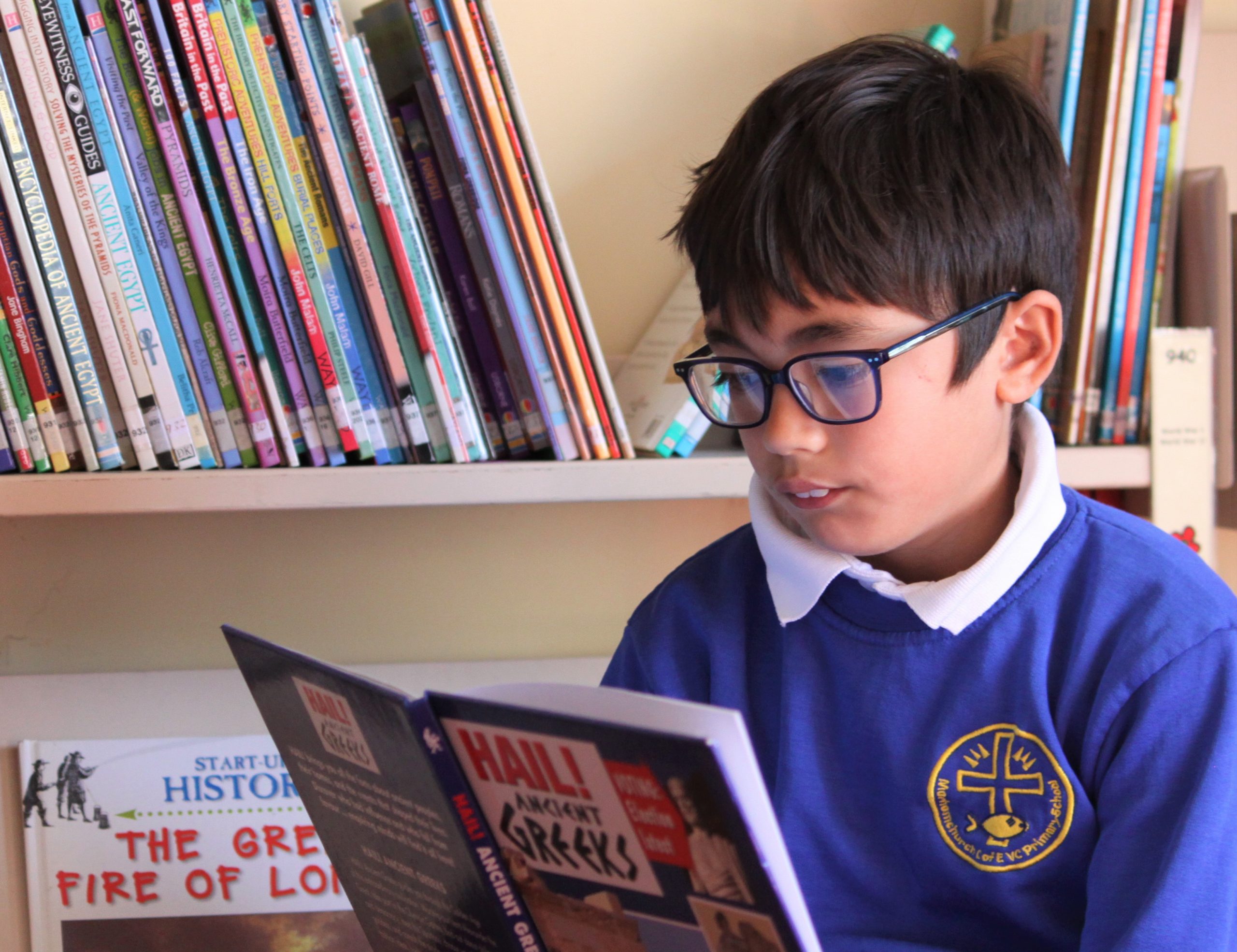Reading is at the heart of our learning and teaching and essential to every area of the curriculum. It is through literacy that concepts are formed, and we are able to make sense of the world and our place in it. Children are taught to read in a variety of ways.
We want children to develop a love of reading so we immerse ourselves in books, we use our library and we read books every day. We would ask parents to spend some time each day sharing a book with their child each day.
Reading for pleasure
There is overwhelming evidence that literacy has a significant relationship to people’s life chances. Reading for pleasure is more important than either wealth or social class as an indicator of success at school.
Parents are the most important reading role models for children and young people, yet according to the Reading Agency, only 1 in 5 parents easily find the opportunity to read to their children.
What does reading do for our children?
- Reading improves concentration – Children have to sit still and quietly so they can focus on the story when they’re reading. Reading also relaxes the body and calms the mind whilst also exercising the connections in the brain.
- Reading teaches children about the world around them – Through reading, they learn about people, places and events outside their own experience.
- Reading improves a child’s vocabulary, leads to more highly-developed language skills and improves the child’s ability to write well.
- Children learn new words as they read as well as seeing how to structure sentences and how to use language effectively.
- Reading develops a child’s imagination – When we read we translate the descriptions of people, places and things into pictures.
- Reading helps children develop empathy – When we’re engaged in a story, we imagine how the characters are feeling and use our own experiences to imagine how we would feel in the same situation.
Talking about books
Once children have learned to read, comprehension of what the words are telling you becomes an important skill to practice and reading to your child is a good way. Ask them to re-cap what’s already happened. Ask them to guess what might happen next. Get them to tell you how they would feel.
Fiction vs non-fiction
Many children have a preference for either stories or fact books, but it is important to get a mix. Fiction helps children have empathy with other people, understand characters and how they relate to each other, while non-fiction gives children the ability to understand facts and more complex ideas.
A book at bedtime
- Reading a story to your child at bedtime is a great way to end the day and a lovely way of enjoying reading for pleasure.
- If you’ve had a stressful or busy day, half an hour sat curled up on your child’s bed reading together is a good way to wind down.
- If your child has had some challenging behaviour then spending some quiet time reading is a way of re-connecting.
- Reading to your child gives them access to stories and vocabulary that they might not be able to read so fluently themselves and is great for reluctant readers too.
- A story at the end of the day is also part of a good night time routine that can help your child settle and wake up refreshed ready for the next day.


